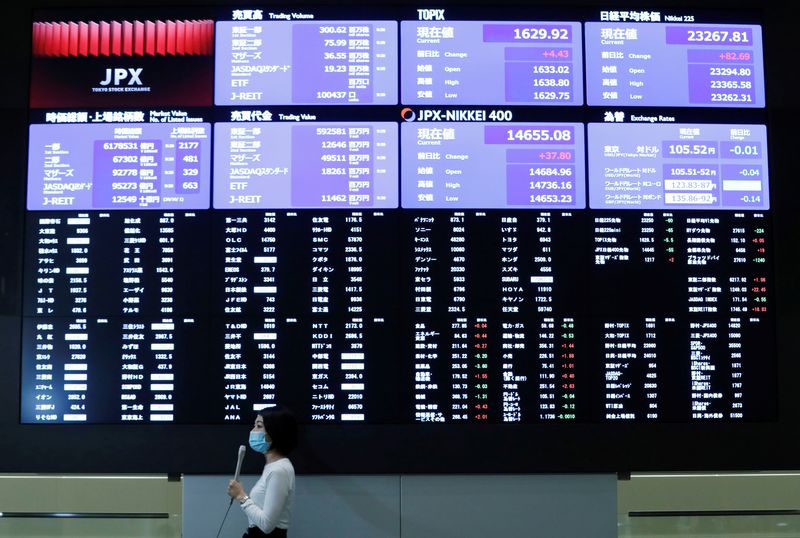Investing.com’s stocks of the week
By Jamie McGeever
(Reuters) - A look at the day ahead in Asian markets.
South Korea delivers its latest interest rate decision on Thursday with the main focus being policymakers' signal as to when the rate-cutting cycle begins, while Japanese stocks continue to ride the crest of an increasingly bullish wave.
The latest figures for Thai consumer sentiment, Malaysian industrial production, Australian trade and Japan's foreign exchange reserves are also out on Thursday, ahead of the most significant event for global markets this week - U.S. inflation.
Japanese markets, if not the rest of the region, are poised to open on a strong footing on Thursday after yet another solid performance on Wednesday.
Japan's Nikkei 225 index surged to a fresh 34-year high above 34,000 points as investors ponder whether the Bank of Japan will 'normalize' policy as quickly or dramatically as they were anticipating.
The BOJ had already begun scaling back its ultra-easy policy by effectively lifting the 'yield curve control', paving the way to phase it out completely and end seven years of negative interest rate policy later this year.
But recent data suggest inflation is falling back towards the BOJ's 2% target and inflationary pressures are easing. If so, will the BOJ need to move so quickly, or even at all?
The yen is weakening, making Japanese exports more competitive in the global marketplace and making it cheaper for overseas investors to buy Japanese assets. As a result, Japanese stocks are on a tear and outperforming their peers.
The Nikkei is on course for its best week in three months and is up 3% this year, while the S&P 500 and MSCI World Index are essentially flat, the Euro STOXX 50 is down more than 1% and the MSCI Asia Pacific ex-Japan index is down 4%.
Elsewhere in Asia on Thursday, attention shifts to Seoul and the Bank of Korea's latest policy decision.
The BOK is widely expected to keep its key policy rate unchanged at 3.50% for an eighth consecutive meeting, but with inflation easing, speculation around when the BOK pivots is bound to intensify, especially with the Fed, ECB and other major central banks widely expected to start cutting rates soon.
Inflation is currently 3.2%, above the central bank's 2% target but cooling once again, and the won is down around 2% against the dollar so far this year.
BOK Governor Rhee Chang-yong said in a New Year speech the central bank would adopt a "policy mix" to bring down inflation and warned that keeping monetary policy restrictive for too long posed risks.
Swaps markets currently point to a quarter-point rate cut by August and a strong probability of another by the end of the year.
Here are key developments that could provide more direction to markets on Thursday:
- South Korea interest rate decision
- Australia trade (November)
- Malaysia industrial production (November)
(By Jamie McGeever)
